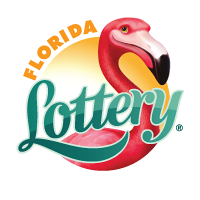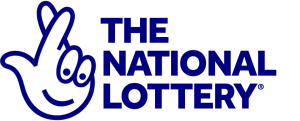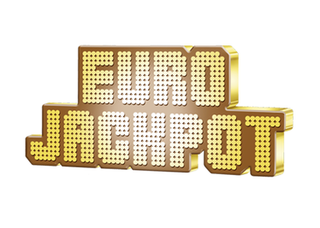
A lottery is a form of gambling that involves the drawing of numbers at random for a prize. Some governments outlaw lotteries, while others endorse it to the extent of organizing a national or state lottery. It is common to find some degree of regulation of lottery by governments. The most common regulations are prohibition of sale to minors and licensing of ticket vendors. Although lotteries were common in the United States and some other countries during the 19th century, by the beginning of the 20th century, most forms of gambling, including lotteries and sweepstakes, were illegal in the U.S. and most of Europe as well as many other countries. This remained so until well after World War II. In the 1960s, casinos and lotteries began to re-appear throughout the world as a means for governments to raise revenue without raising taxes.
Powerball is an American lottery game offered by 45 states, the District of Columbia, Puerto Rico and the U.S. Virgin Islands, and overseen by the Multi-State Lottery Association (MUSL), which also manages other large jackpot games such as the Mega Millions. Drawings are held three times weekly on Mondays, Wednesdays, and Saturdays at 10:59 p.m. Eastern Time, at the Florida Lottery's headquarters in Tallahassee.

The Georgia Lottery Corporation, known as the Georgia Lottery, is overseen by the government of Georgia, United States. Headquartered in Atlanta, the lottery takes in over US$1 billion yearly. By law, half of the money goes to prizes, one-third to education, and the remainder to operating and marketing the lottery. The education money funds the HOPE Scholarship, and has become a successful model for other lotteries, including the South Carolina Education Lottery.

The Florida Lottery is the government-operated lottery of the U.S. state of Florida. As of 2022, the lottery offers eleven terminal-generated games: Cash4Life, Mega Millions, Powerball, Florida Lotto, Pick 2, Pick 3, Pick 4, Pick 5, Fantasy 5, Cash Pop, and Jackpot Triple Play. A player must be 18 or older to play.

The Pennsylvania Lottery is a lottery operated by the Commonwealth of Pennsylvania. It was created by the Pennsylvania General Assembly on August 26, 1971; two months later, Henry Kaplan was appointed as its first executive director. The Pennsylvania Lottery sold its first tickets on March 7, 1972 and drew its first numbers on March 15, 1972.

The New Zealand Lotteries Commission, trading as Lotto New Zealand since 2013, is a Crown entity that operates nationwide lotteries in New Zealand. It was established in 1987 and operates under the Gambling Act 2003. Its oldest and most popular game is Lotto, which boasts a top prize pool of NZ$1 million. Other games include the four-draws-daily Keno, the daily Bullseye, and a variety of scratchcards and online games known as Instant Kiwi. Instant Kiwi may only be played by persons 18 years of age or older, under the Gambling Act 2003. Powerball and Lotto Strike are optional extras with every Lotto ticket. Powerball is a jackpotting game, with a maximum jackpot of $50 million - after which a Must Be Won draw must be called.

The Idaho Lottery began play on July 19, 1989, and is run by the government of the state of Idaho. It is a member of the Multi-State Lottery Association (MUSL). Fifty percent of all net funds is given to public schools, while the remainder is pledged to the Permanent Building Fund, which is used as a financial resource for the state's colleges and universities.

The Connecticut Lottery Corporation, also called the CT Lottery, is the official lottery in Connecticut. It was created in 1971 by then-Gov. Thomas Meskill, who signed Public Act No. 865. The first tickets were sold on February 15, 1972. The Connecticut Lottery offers several in-house drawing games; Connecticut also participates in Mega Millions and Powerball; each are played in 44 states, the District of Columbia, and the U.S. Virgin Islands.
The New Jersey Lottery is run by the U.S. state of New Jersey. Its In-house draw games are Pick-3, Pick-4, Jersey Cash 5, Pick-6, Quick Draw, and Cash Pop. Its multi-jurisdictional draw games are Cash4Life, Mega Millions, and Powerball. The Lottery also sells Fast Play and scratch-off tickets. The New Jersey Lottery is headquartered at One Lawrence Park Complex in Lawrence Township, Mercer County.
The Louisiana Lottery Corporation (LLC) is a government-run lottery that is used to generate revenue without increasing taxes. The proceeds of the Lottery go to the Minimum Foundation Program that funds public education in Louisiana. The daily activities involved with running the cooperation are handled by the president of the Louisiana Lottery Cooperation. The president is under the supervision of the Lottery's nine-member governing board of directors.

The Rhode Island Lottery is run by the government of Rhode Island. The modern form of the Rhode Island Lottery was inaugurated in 1974, following a constitutional amendment passed in 1973. It is a charter member of the Multi-State Lottery Association (MUSL). Rhode Island Lottery games include Mega Millions, Powerball, Wild Money, Keno, and scratch tickets. The Rhode Island Lottery also offers online lottery games and oversees and regulates video lottery as well as sports betting.
The Wisconsin Lottery is run by the Wisconsin Department of Revenue and was authorized in 1988 by the state legislature. It is a member of the Multi-State Lottery Association (MUSL). Its games consist of Mega Millions, Powerball, Megabucks, Supercash!, Badger 5, Pick 3, Pick 4, All or Nothing, and scratch games. Since its founding, it has generated $4.6 billion for property tax relief for state residents.

The Kentucky Lottery, began in April 1989 after a November 1988 vote in which over 60% of voters cast ballots in favor of it. On April 4, 1989, ticket sales began at over 5,000 licensed retailers with over $5 million in sales on the first day. Kentucky Lottery players had two Scratch-off games to choose from, including, Beginner's Luck ($1) and Kentucky Derby Dreamstakes ($2).
The Virginia Lottery is an independent agency of the Commonwealth of Virginia. It was created in 1987 when Virginians voted in a statewide referendum in favor of a state lottery. The first ticket was sold on September 20, 1988. All profits from Virginia Lottery ticket sales go to K-12 public education, as required by Virginia's constitution. In Fiscal Year 2024, the Lottery's profits totaled more than $934 million, accounting for approximately 10 percent of school funding in Virginia. That brought total Lottery profits in Virginia to more than $16 billion.

The National Lottery is the state-franchised national lottery established in 1994 in the United Kingdom. It is regulated by the Gambling Commission, and is operated by Allwyn Entertainment, who took over from Camelot Group on 1 February 2024.

Bingo is a game of probability in which players mark off numbers on cards as the numbers are drawn randomly by a caller, the winner being the first person to mark off all their numbers. Bingo, previously known in the UK as Housey-Housey, became increasingly popular across the UK following the Betting and Gaming Act 1960 with more purpose-built bingo halls opened every year until 2005. Since 2005, bingo halls have seen a marked decline in revenues and the closure of many halls. The number of bingo clubs in Britain has dropped from nearly 600 in 2005 to under 400 as of January 2014. These closures are blamed on high taxes, the smoking ban, and the rise in online gambling, amongst other things.

The National Lottery is the state-licensed lottery of the Republic of Ireland. Established in 1986 to raise funds for good causes, it began operations on 23 March 1987 when it sold its first scratchcards. It launched the weekly drawing game Lotto the following year, holding the first draw on 16 April 1988. It now offers EuroDreams draws on Mondays and Thursdays, EuroMillions and Plus draws on Tuesdays and Fridays, Lotto and Lotto Plus draws on Wednesdays and Saturdays, and two Daily Million draws each day. Its other games include televised bingo, an annual Millionaire Raffle, and online instant-win games. The minimum age to play all National Lottery games is 18.
A lottery is a form of gambling which involves selling numbered tickets and giving prizes to the holders of numbers drawn at random. Lotteries are outlawed by some governments, while others endorse it to the extent of organizing their own national (state) lottery. It is common to find some degree of regulation by governments, like allowing or prohibiting online sales of tickets.

Eurojackpot is a transnational European lottery launched in March 2012. As of March 2024, the countries participating in the lottery are: Croatia, Czechia, Denmark, Estonia, Finland, Germany, Hungary, Iceland, Italy, Latvia, Lithuania, Netherlands, Norway, Poland, Slovakia, Slovenia, Spain Sweden, and Greece.

Monopoly Millionaires' Club (MMC) was a series of 16 scratchcard games that differed by its participating lotteries; its players could become eligible to be flown to Las Vegas to take part in an episode of the Monopoly Millionaires′ Club game show













